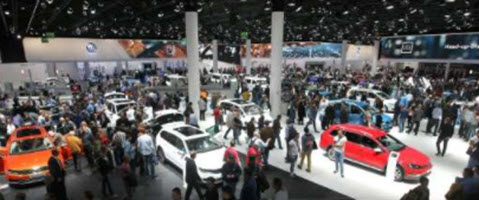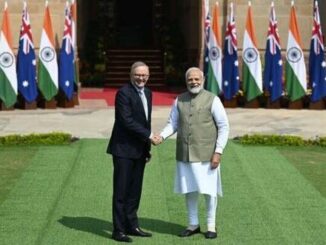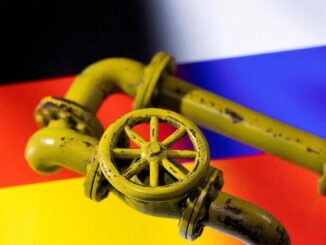
How can European carmakers ensure their supply chains are secure in a more uncertain world?
I think one key aspect is diversifying their supply chains. We are already seeing there is a shortage with chips and semiconductors, and there is a threat that this could happen in the lithium-ion battery supply chain too. A similar situation there could have a similar effect, limiting the number of cars they can produce within a certain time.
One very important factor is certainly localisation. In the battery supply chain, this started a few years ago. The European Commission focused on the supply chain and realised there was a lack of cell production facilities in Europe. It has been tackled by the European Battery Alliance (EBA), with the help of Important Projects of Common European Interest, which has led to quite a few battery cell suppliers that will settle, or have already settled, in Europe.
There is a hotspot in Germany, which we are very happy about, but you can also see many in Europe, Poland, Hungary, France, Italy and a variety of other countries that are going to come on line in the next few years.
Can localised battery supply chains be cost effective, competitive and sustainable?
Initially it is very capital intensive, and production itself can be energy intensive. These are the biggest hurdles to getting into cell production, but once cell production is established, the cost of production is similar to that in east Asia, China, South Korea and Japan. We can see this in US battery production facilities, which are cost effective.
There is no doubt that European cell manufacturing will be, on one level, competitive globally. Europe has had a delay to starting production, but now we can see that mass production is coming to Europe and it is just in time.
Will the focus on securing supply chains continue after the Covid-19 pandemic is over?
I see that the focus has changed, especially in the battery cell supply chain, but this was not a major issue because of Covid-19. There were supply chain disruptions in the automotive industry, but the battery supply chain has been stable and if there were bottlenecks, it was in cell production. Nonetheless, the carmakers are partly localising and diversifying the supply chain. I think there is a pro-active movement for diversifying and localising production to avoid potential bottlenecks.
Carmakers will still rely on suppliers, whether they are German, European or global suppliers. It is not only European companies operating in Europe. Asian battery producers are moving some of their facilities to Europe. Even with a local supply chain, it can still mean a foreign producer. But it is important to have a local supply chain to ensure a low-carbon footprint, which will be a major factor in the next few years. It will be important not only during the lifetime of a vehicle but also in the production.
Could diversifying supply chains for batteries lead to a more open, commodified market for some of these products?
For the moment, I think it will stay as direct agreements between cell suppliers and carmakers, because the battery cell is not yet a commodity. There are different cathode and anode technologies, different battery chemistries and different sizes and shapes, like pouch cells, so I do not see that happening for large producers. It might be a thing for smaller producers, which may want to try and save on battery costs, but for the time being, the battery cell will not become a commodity.
Is there a blind spot in Europe on battery chemicals and cathode materials?
There is, to larger extent, because there are fewer cathode material producers in Europe, although there are three or four major producers. This is something where we will be in need of a diversified supply chain. After the EU commission established the EBA, it also formed the European Raw Materials Alliance (ERMA), which will focus heavily on a few core topics, one them being the battery supply chain. It will focus more upstream than the EBA, which was more focused on cell production. ERMA will focus more on raw materials to cathode active materials and the circular economy.
Are there any metals that are particularly concerning to carmakers looking at future supply bottlenecks?
One of the raw materials that is of possible concern is definitely the rare earth value chain for the production of electric vehicle (EV) motors and permanent magnets. Prices peaked in 2010-11 and ever since then, China has been dominant not only in mining, but in the entire value chain. This is an area where the EU and carmakers need to be careful. They need to get a grip on the value chain and diversify their supplies. After the 2010-11 peak, there were a lot of mining projects, but prices fell and a lot of projects were put on hold, held at feasibility studies. It is now in focus once again because of demand from EVs and wind, and because prices are higher again. This is a positive sign though, but in mining and refining we do not see enough activity and there is still dependence on China.
Is environmental impact a concern when trying to build a more localised rare earth supply chain?
The environmental impact will be one of the key measurements that wannabe European refiners would have to meet, but Europe is strong in research and development in this area. There is room for improvement, but once this can be industrialised, a European rare earth supply is possible, I believe.
US president Joe Biden issued an executive order this week for a 100-day review of global supply chains for rare earth minerals, large-capacity batteries and semiconductor chips. What kind of innovation around supply chains do you think the automotive sector would like to see? Are there concerns about an increase in protectionist trade measures around the world?
I think securing supple chains and localising supply chains has always been an important aspect of the market. There is always a balance between a de-risked and cost-competitive supply chain. It is also a question of labour. Localising is a measure to protect jobs, a fact that the Biden administration now takes into account. I think the EU is one step ahead on this, in terms of securing supply chains for future technologies. I am not necessarily afraid of these protection elements, but we do not want any nationalism. We need to be able to produce the cars, but I do not think protectionism is the aim of the German automotive industry.




1 Trackback / Pingback
Comments are closed.